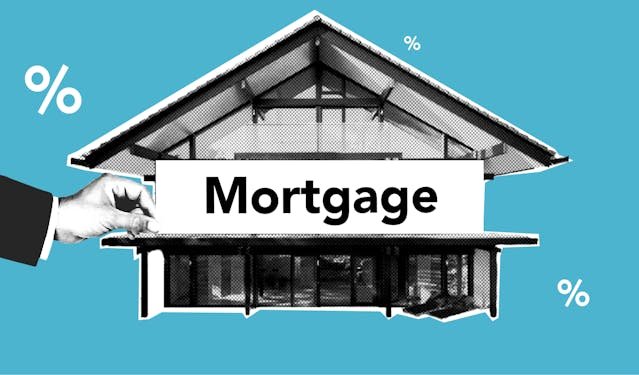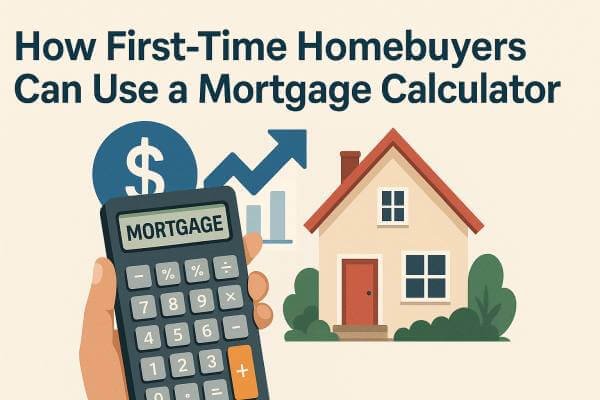How to Access the First-Time Homebuyer Credit in the US

Are you thinking about buying your first home? You’ve probably come across the term first-time homebuyer credit, but don’t know what it is exactly and how you actually get it. If you’re feeling a little confused, don’t worry; you’re not alone.
This credit is designed to help make homeownership more affordable for people just starting out, but between the fine print, changing laws, and different state rules, it can feel like a difficult journey.
In this guide, we’ll break it all down in plain English. You’ll learn what the first-time homebuyer credit is, who qualifies for it, and how to apply without the headache. Whether you’re actively house hunting or just dreaming about owning a place, understanding this credit could save you thousands and maybe even help you buy sooner than you thought.
What Is the First-Time Homebuyer Credit?
It’s basically a tax break for first-time buyers. The first-time homebuyer credit is a government program that gives people like you and me: people buying their very first home, a tax credit. That means you could get a chunk of money back when you file your taxes, just for making that big leap into homeownership.
Everyone knows that buying a home can drain your savings fast. This credit is designed to take a bit of that pressure off.
A Quick Look at the History
This isn’t the first time we’ve seen something like this. The original version of the first-time homebuyer credit popped up back in 2008 to help revive the housing market. It gave buyers up to $8,000, but that version ended a few years later.
Now, there’s talk of bringing it back and even improving it. Newer proposals, like the First-Time Homebuyer Act, aim to offer up to $15,000 in credit for eligible buyers. While these updates aren’t always permanent (and sometimes vary by state), they’re definitely worth keeping on your radar if you’re thinking about buying.
How Does It Actually Work?
If you’re eligible, the credit reduces how much you owe in taxes. In some versions, if you don’t owe any tax at all? You still get the credit as a refund. This represents a substantial return on your investment. It’s not a loan, and you don’t have to pay it back (as long as you meet the requirements).
Some states even offer additional homebuyer credits or down payment assistance, which you can stack with the federal credit. More on that later!
Why You Should Care
Buying your first home is exciting, but it’s also expensive and a bit overwhelming. The first-time homebuyer credit is one of those rare tools that can actually make things easier financially.
Whether you’re a few months away from closing or just daydreaming about it, understanding how this credit works can give you a serious edge.
So, if someone is offering to help you save thousands of dollars simply for purchasing a house, wouldn’t you want to know how to seize that opportunity? Wouldn’t you want to know how to grab that opportunity?
Who Qualifies for the First-Time Homebuyer Credit?
So you’re probably wondering, do I actually qualify for the first-time homebuyer credit? That’s a wonderful question, and honestly, it depends on a few key things.
What Counts as a “First-Time” Homebuyer?
It might surprise you that you don’t need to be buying your very first-ever home to be considered a first-time homebuyer. Weird, right?
According to most programs (including the federal first-time homebuyer credit), you’re considered a first-time buyer if you haven’t owned a home in the last three years. That’s it. So if you owned a home five years ago, rented for a while, and now you’re buying again, you still count.
Income Limits (Yes, There Are Some)
Here’s where things get a little more specific. Most versions of the first-time homebuyer credit come with income limits to make sure the help goes to folks who really need it.
The exact income cap depends on:
- Where you live (big cities usually have higher limits)
- Whether you’re buying solo or as a couple
- The program version (federal vs. state-level)
For example, under the proposed First-Time Homebuyer Act, the full credit may phase out if you earn over $100,000–$150,000, depending on your situation. But don’t worry; even if you earn a bit more, you might still get a reduced credit.
Location Can Make a Difference
Here, your ZIP code matters. Some areas get extra incentives because they’ve been labelled as underserved or economically vulnerable. These bonuses might come through your state, city, or even neighbourhood-specific programs.
Plus, many states have their own first-time homebuyer credits or grant programs that layer on top of the federal option. It’s worth doing a little digging to see what’s offered where you live.
Other Basic Requirements
Let’s run through a few other things that typically come up:
- You need to be a U.S. citizen or legal resident
- You must plan to live in the home as your primary residence
- The home you’re buying has to meet basic safety and legal standards (no fixer-upper fire hazards)
- You can’t use the credit for a vacation home or rental property
Bottom line? If you’re buying your first home to actually live in and earn a moderate income and haven’t owned a house in a few years, you’re probably in a great position to qualify.
How Much Can You Receive from the First-Time Homebuyer Credit?
We are now discussing financial benefits. How much is the first-time homebuyer credit actually worth? Is it just a small tax perk, or are we talking real savings?
The Current Numbers (and What You Could Get)
If the First-Time Homebuyer Act (or something similar) becomes law, you could get up to $15,000 back through the first-time homebuyer credit. That’s right, you could receive up to fifteen grand.
That amount would come as a refundable tax credit, meaning it’s not just a discount on your taxes; it could turn into a check from the IRS, even if you don’t owe any taxes at all. This represents a substantial amount of money that you can reclaim.
That’s a beneficial return for purchasing a home you were already planning to buy.
The Credit Might Be Reduced Based on Income
Not everyone gets the full $15K. The credit amount phases out once your income hits a certain level. So if you earn more than the limit, you might still get something, just not the full amount.
For example:
- Full credit = $15,000
- Partial credit if your income is slightly above the cutoff
- No credit if your income is way over the limit
Is This a Tax Deduction or a Credit?
This is a tax credit, not a deduction. That means it directly lowers your tax bill dollar for dollar. A deduction just reduces your taxable income. Way less exciting. A credit gives you real money back.
Let’s say you owe $5,000 in taxes, and you qualify for the full $15,000 credit. The IRS would wipe out your tax bill and send you the extra $10,000 as a refund.
A Quick Comparison Table (For the Visual Folks)
| Situation | Credit You Could Receive |
| First-time buyer, low/moderate income | Up to $15,000 |
| Income slightly above the limit | Partial credit |
| High income, above threshold | No credit |
Some States Add More!
There are some states that offer their own homebuyer credits or down payment help on top of the federal program. So in certain places, you could stack benefits and get even more help.
Ensure to consult your local housing agency or lender, as they frequently have knowledge about these undiscovered benefits.
How to Apply for the First-Time Homebuyer Credit
It’s not as complicated as it sounds. Here’s the process, broken down:
Step 1: Make Sure You’re Eligible
Firstly, confirm your eligibility. That means:
- You haven’t owned a home in the past 3 years
- You plan to live in the home (not rent it out)
- Your income falls under the limit
- You’re buying in the U.S., and the property qualifies
Step 2: Get Pre-Approved for a Mortgage
While this isn’t part of the credit application technically, it’s a huge first step in the homebuying process. You’ll need to know what you can afford, and having a pre-approval makes you look serious to sellers. Plus, many state-level programs (and even some federal ones) require you to go through approved lenders.
Step 3: Gather the Right Paperwork
While paperwork may not be to everyone’s taste, it is an essential aspect of the process. Here’s what you’ll probably need when applying for the credit:
- Proof of income (pay stubs, W-2s, or tax returns)
- A copy of your purchase agreement
- ID and proof of residency
- Mortgage documents
- Possibly a certificate from a homebuyer education course (some states require this)
Keep everything organised in a folder, whether physical or digital. It’ll make things way easier when it’s time to apply or file your taxes.
Step 4: Complete the Correct IRS Forms
If the first-time homebuyer credit is active federally (like under the proposed First-Time Homebuyer Act), the IRS will issue a specific form, similar to the old Form 5405 that was used back in the 2008 version.
Here’s what you’d typically do:
- Fill out the credit form when you file your federal taxes
- Attach it to your tax return
- Double-check the numbers before submitting (or ask a tax pro if you’re unsure)
And if you’re working with a tax preparer or using software like TurboTax, most will walk you through it step by step.
Step 5: Know When to Apply
This part confuses many people, and it’s understandable.
In most cases, you claim the first-time homebuyer credit when you file your taxes for the year you bought the home. So if you buy in 2025, you’ll include it in your 2025 tax return (filed in early 2026).
But some local or state programs work differently and let you apply right after closing or even offer advance credits or grants before tax season.
If this still feels overwhelming, you’re not alone. A licensed mortgage advisor or tax professional can walk you through the specifics, especially if you’re trying to stack state and federal benefits.
Trust me, it’s totally worth asking a few questions if it means getting thousands of dollars back.
Tax Filing and Documentation Tips
It is clear that axes aren’t exactly anyone’s idea of fun. But when it comes to claiming the first-time homebuyer credit, knowing what to do (and what not to do) can save you time, stress, and possibly even money.
Here’s how to handle the tax side without losing your mind.
What IRS Form Do You Need?
If the federal first-time homebuyer credit is active when you buy, the IRS will usually have a specific form for it. In the past, it was called Form 5405, and there’s a good chance a similar one will be used again.
Here’s what you’d typically do:
- Fill out the homebuyer credit form during tax season
- Attach it to your federal tax return
- Submit everything like you normally would
If you’re using tax software or a professional, they’ll usually guide you through the whole thing automatically.
What Documents Should You Keep?
Even if no one asks for them up front, you should hold onto your paperwork in case the IRS or your state ever needs proof.
Here’s a quick list of what to keep:
- Final purchase agreement (signed and dated)
- Closing disclosure (shows what you paid and when)
- Mortgage statement
- Proof of identity and residency (driver’s license, utility bills, etc.)
- Income documents (W-2s, tax returns, pay stubs)
- Homebuyer education certificate (if required)
Common Filing Mistakes to Avoid
Take note of the stuff that trips people up, so you don’t have to learn the hard way.
- Forgetting to include the right form: No form = no credit. Don’t skip it.
- Using the wrong tax year: Only claim the credit in the year you actually bought the home.
- Entering incorrect info: Double-check your purchase date, price, and address.
- Filing too early: If you haven’t closed on the home yet, don’t try to claim the credit.
Heads-Up: Repayment Clauses (Just in Case)
Most of the newer versions of the first-time homebuyer credit don’t require repayment, as long as you live in the home for a certain number of years (usually 4 or more). If you sell too soon or move out early, you may have to repay some credit.
So read the fine print and make sure you understand the terms before filing.
State-Specific First-Time Homebuyer Credits
Here’s a little secret most new buyers don’t know: your state might actually give you more money on top of the federal first-time homebuyer credit. There are state-run programs that offer tax credits, grants, or even down payment assistance just for buying your first home.
California – The CalHFA Dream For All Program
If you reside in California, you’re fortunate. Housing Finance Agency (CalHFA) has programs like the “Dream For All” Shared Appreciation Loan, which helps first-time homebuyers with their down payment. While it’s not a direct tax credit, it pairs really well with any federal benefits.
California sometimes runs its own homebuyer tax credit programs during specific years, especially for low-to-moderate-income buyers.
Texas – The My First Texas Home Program
My First Texas Home program, which helps with down payment assistance and reduced interest rates for first-time buyers. It doesn’t replace the federal credit; it stacks with it. And since Texas doesn’t have a state income tax, most of the benefits here come in the form of mortgage help, not tax credits.
New York – State of NY Mortgage Agency (SONYMA)
If you’re buying in New York, SONYMA offers some sweet deals for first-time buyers, including down payment assistance and grants up to $15,000. They also provide low-interest loans with fixed rates.
New York sometimes offers state-level tax relief in certain cities or counties, depending on your income and purchase price.
Florida – Florida Hometown Heroes & More
The state of Florida offers a few first-time buyer programs, including Hometown Heroes, which provides down payment and closing cost assistance to frontline workers and essential professionals (like teachers, nurses, and firefighters).
It’s not technically a tax credit, but if you’re in Florida, this program can seriously ease the upfront costs of homeownership. You can combine it with the federal first-time homebuyer credit.
Illinois – IHDA Access Programs
The state of Illinois has multiple programs under the Illinois Housing Development Authority (IHDA), including Access Forgivable, which gives you up to $10,000 in down payment assistance, and it’s forgiven after 10 years.
They also provide help with closing costs and even offer tax credit certificates in certain cases that reduce your income taxes over time.
Pros and Cons of Using the First-Time Homebuyer Credit
Anything that offers a potential payout of thousands of dollars appears to be a compelling option. And yes, the first-time homebuyer credit can be a huge win. But, it’s not completely risk-free or one-size-fits-all.
The Pros
Real Money in Your Pocket
You can receive it as a tax refund or as a substantial credit against your outstanding debt. In some cases, you could get up to $15,000 just for being a qualified first-time buyer. That’s a massive help when you’re facing down a mountain of homebuying costs.
It Can Offset Closing Costs & Down Payments
Buying a house comes with a ton of “extra” costs no one really talks about. The credit alleviates your tax burden and replenishes your bank account.
Makes Homeownership More Accessible
For folks with lower or moderate incomes, this credit can be the difference between renting for another five years or finally owning your place. It’s designed to level the playing field a bit, and that’s a good thing.
You Can Combine It With Other Programs
Like we covered earlier, many buyers can stack the first-time homebuyer credit with other federal, state, or even local programs.
The Cons
It Might Not Be Available Every Year
The first-time homebuyer credit isn’t always active, and even when it is, the rules can change depending on which version of the law passes. Some years, there’s a program. Other years? Nothing. You’ll need to time things right.
It Can Be Confusing to Navigate
Navigating through federal rules, state programs, tax forms, and eligibility fine print can quickly become complex. It’s certainly not a straightforward process. A wrong form or missed deadline can cost you the credit.
You Might Have to Stay Put for a While
Many programs require you to live in the home for a certain number of years, usually three to five. If you sell early or move out, you might have to repay all or part of the credit. So if you’re not sure you’ll stay in the home long-term, think it through.
Not Everyone Qualifies
To be honest, not everyone will get the full credit. If your income is too high, or if you’ve owned a home recently, you might get a reduced credit… or nothing at all. It’s a wonderful opportunity, but it’s not guaranteed for everyone.
In most cases, yes. If you meet the eligibility requirements and intend to remain in your new home, the first-time homebuyer credit can significantly alleviate your financial burden and assist you in starting your new life.
But like anything money-related, it pays to read the fine print and make sure the program fits your situation.
Alternatives to the First-Time Homebuyer Credit
There are actually a ton of other programs and resources out there designed to help first-time buyers just like you. Some offer upfront cash, others reduce your mortgage payments, and a few even wipe out part of your loan if you meet certain conditions. Let’s check out your options.
FHA Loans (Federal Housing Administration)
These loans are one of the most popular options for first-time homebuyers and for good reason.
- You only need a 3.5% down payment
- Your credit score can be as low as 580
- It’s backed by the government, so lenders are more flexible
This program isn’t a tax credit, but it makes buying a home way more doable, especially if you’re not sitting on piles of savings.
Down Payment Assistance Programs (DPAs)
These can come in the form of:
- Grants (free money you don’t pay back)
- Forgivable loans (only repay if you sell or move too soon)
- Zero-interest loans (paid back over time)
They’re offered by state agencies, cities, counties, and even some employers. And yes, they often stack with the first-time homebuyer credit if it’s available.
First-Time Homebuyer Grants
Some areas offer grants specifically for first-time buyers, especially if you’re in a targeted profession like:
- Teaching
- Healthcare
- First responders
- Military or veterans
These grants are usually location-based and don’t need to be repaid. It’s basically free money to help you get into your first home.
Mortgage Credit Certificates (MCCs)
Here’s one not many people know about: Mortgage Credit Certificates, or MCCs, are a form of ongoing tax relief for homebuyers.
Instead of a one-time credit like the first-time homebuyer credit, MCCs let you claim a portion of your mortgage interest as a tax credit every year, for as long as you live in the home. That could mean saving thousands over time.
Check with your state housing agency to see if MCCs are offered where you live.
Employer-Sponsored Programs
Some companies (especially hospitals, schools, and large corporations) offer homebuyer assistance as part of their employee benefits.
Perks might include:
- Closing cost help
- Matching grants for down payments
- Partnerships with lenders to lower your rate
It’s definitely worth checking with your HR department. You might be overlooking potential benefits.
Final Thoughts
We’ve covered a lot, huh? From what the first-time homebuyer credit actually is, to who qualifies, how much it’s worth, how to apply, and what to do if it’s not available. You’re now way more prepared than most first-time buyers out there.
Frequently Asked Questions About the First-Time Homebuyer Credit
❓ Is the first-time homebuyer credit available in 2025?
As of now, the first-time homebuyer credit is being proposed under several bills, like the First-Time Homebuyer Act, but it hasn’t been fully passed into law yet. That said, there’s a lot of momentum behind it, and programs like this tend to gain traction in election years, so keep your eyes peeled.
Pro tip: Even if the federal credit isn’t active, many states and cities offer similar benefits right now.
❓ Do I have to repay the first-time homebuyer credit?
In most of the newer versions being proposed, no repayment is required, as long as you stay in the home for at least 4 years. But older versions (like the 2008 credit) did require repayment over time or in full if you sold early.
Just be sure to read the terms of whichever program you use. If you move or sell too soon, repayment could kick in.
❓ Can I get the credit if I buy a home with someone else?
Yes! If you’re buying a home with a partner, spouse, or even a friend, you can both qualify as long as you each meet the eligibility requirements. In some cases, the total credit might be split based on your ownership percentage.
Just make sure both buyers count as “first-time” under the program’s rules.
❓ What happens if I already bought a home — can I still get the credit?
Unfortunately, the first-time homebuyer credit only applies to the year you purchase the home. If you bought your house before the credit became active (or in a year it wasn’t offered), you’re likely out of luck for that benefit.
However, you may still qualify for mortgage interest deductions, MCCs, or state/local grants. So it’s worth looking into other tax perks.
❓ Can I combine the first-time homebuyer credit with other programs?
Absolutely! In fact, that’s one of the best strategies. You can often stack the credit with FHA loans, down payment assistance, grants, and even employer-sponsored benefits. Just make sure you meet the eligibility requirements for each program, and keep track of any paperwork you’ll need to submit.
❓ What if I don’t owe any taxes; do I still get the credit?
Yes, if the credit is refundable (like most proposals suggest), you can still receive the money as a refund, even if you don’t owe any federal income tax. This is a huge deal for buyers with lower income. It means the benefit isn’t limited to just high earners.
Footnotes & Sources
Federal Government & Legislative Sources
- IRS – Homebuyer Credit Information
https://www.irs.gov/credits-deductions/first-time-homebuyer-credit - Congress.gov – First-Time Homebuyer Act of 2021 (H.R.2863)
(Still being reviewed and referenced for newer proposals in 2025)
https://www.congress.gov/bill/117th-congress/house-bill/2863 - White House Housing Plan (for recent proposals & federal action)
https://www.whitehouse.gov/briefing-room/statements-releases/
National Housing & Mortgage Authorities
- U.S. Department of Housing and Urban Development (HUD) – Homebuying Programs
https://www.hud.gov/topics/buying_a_home - Consumer Financial Protection Bureau (CFPB) – First-Time Homebuyer Basics
https://www.consumerfinance.gov/owning-a-home/ - Federal Housing Administration (FHA) – Loan Program Info
https://www.hud.gov/program_offices/housing/fhahistory
Tax & Filing Guidance
- IRS – Form 5405 (Historical Reference for Claiming Homebuyer Credit)
https://www.irs.gov/forms-pubs/about-form-5405 - IRS – Frequently Asked Questions About the Homebuyer Credit
https://www.irs.gov/newsroom/first-time-homebuyer-credit-questions-and-answers
State Housing Finance Agencies (Examples)
- CalHFA – California Housing Finance Agency
https://www.calhfa.ca.gov/homebuyer/ - My First Texas Home – Texas Department of Housing and Community Affairs
https://www.tdhca.state.tx.us/homeownership/fthb/index.htm - SONYMA – New York State Mortgage Agency
https://hcr.ny.gov/sonyma - Florida Housing Finance Corporation
https://www.floridahousing.org/ - IHDA – Illinois Housing Development Authority
https://www.ihda.org/my-home/
Housing Counseling & Education
- HUD-Approved Housing Counseling Agencies
https://www.hud.gov/offices/hsg/sfh/hcc/hcs.cfm
15. National Foundation for Credit Counseling – Homeownership Resources
https://www.nfcc.org/what-we-offer/homeownership/
























